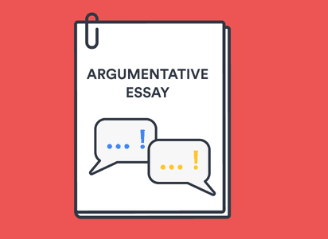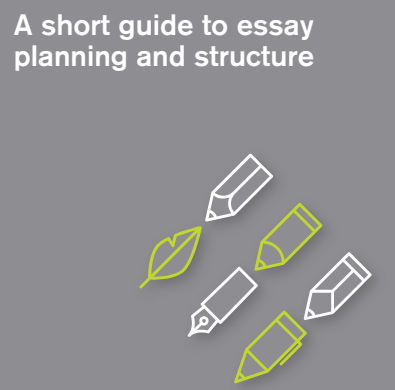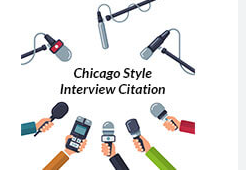Subjunctive: What is it? Examples and Definitions

The tone is just as important to convey a message in a piece of writing as words. When it comes to expressing your thoughts and feelings about a topic or predicting how a scenario will turn out, tone conveys everything. A grammatical mood, such as the subjunctive mood, has a role here.
A hypothetical scenario is expressed in the subjunctive mood. You may use it to communicate your hopes, dreams, ambitions, and everything else you can conceive in voice or writing. Subjunctive writing begins with phrases like, “If I were…, “I thought it will….”
What is the function of the subjunctive?
Using the subjunctive is not similar to using tense in a statement. It’s a frame of mind. It’s the ambiguous language you use when discussing what you want to happen, what you hope will happen, or what you expect. No particular subjunctive verb form exists in English, unlike in other languages. Subjunctive mood phrases, clauses, and sentences are stated using the bare form of the verb in a finite clause and, if necessary, using “be” or “were” as the sentence’s connecting verb. Examples of the subjunctive mood are shown below:
- If I were a magician, I would end all my worries.
- I asked a magician if he could end all my worries surrounding me.
The verb’s base form or the bare form is its infinitive form if the particle “to” is omitted. That’s all there is to say about it. The verb “end” is the base form in all of the cases above.
Let’s take a step back and speak about grammatical moods before diving into the subjunctive mood. Grammatical moods are divided into three distinct categories:
- Indicative: This mood is applied to state facts.
- Rem drank all the milk.
- Imperative: This mood is employed while issuing orders.
- Rem, drink the milk!
- Subjunctive: This mood is applied to communicate wants and speculations.
- I ask that you drink the milk, Rem.
Sometimes, an indicative sentence might resemble a subjunctive one, as in the following instance:
- I wish Ken would drink the milk.
The example is challenging because it describes both the speaker’s wish and a specific fact: the speaker hopes Rem will drink the milk. Changing the topic to third-person might facilitate recognition:
- She desires Rem will drink the milk.
A finite clause is a clause with a verb that conveys tense. For instance, the verbs “is” and “snowing” indicate that the activity is occurring in the present tense in the sentence “it is snowing.” The word “was” in the line “it was snowing” suggests snowfall occurred in the past. Alternately, this might be stated as “it snowed.”
Here is where the subjunctive mood departs from most of the sentences you compose. In the subjunctive mood, the verb retains its bare form, while the clause retains its finite but losses the tense:
- Our instructor advised that we complete our assignments early.
- If the store is like most stores in town, I suppose it accepts credit cards.
What about other emotional states?
You may be familiar with more grammatical moods, such as conditional and interrogative moods. Although these moods exist in English, they are not morphologically different, unlike the three moods listed above. In other words, they are not formed by particular word structures. In contrast, the subjunctive needs the verb to be in its base form.
That is not sufficient for the subjunctive mood. Notice the usage of “were” instead of “was” in the first example. ” The use of “were” suggests that the circumstance you’re describing is impossible, or at least looks impossible from your perspective. Use “was” when describing scenarios that are plausible and likely to occur:
- If I had arrived sooner, I would have cleaned up the mess.
This is the distinction between the subjunctive and conditional moods. With the conditional mood, you describe the outcomes that would follow a particular action if it were to occur. With the subjunctive mood, you convey the consequence of a fictitious set of circumstances. You’ll find that many subjunctive sentences match this pattern, though not all do.
Subjunctive rules
Typically, but not always, sentences in the subjunctive mood contain two or more clauses. A clause is a word group consisting of a subject and a verb. Independent clauses can function as whole sentences independently, but dependent clauses can’t.
Consider the following multi-clause subjunctive sentences:
- I request that the board evaluate my idea.
- He wants his sister to arrive before the other visitors.
Previous and current subjunctive
The past subjunctive is the mood used to express events that you wished or hoped had occurred. With this type of statement, the verb “were” is appropriate:
- I wish I were healthier.
- If she were present, she would be the fastest runner.
The present subjunctive employs the base form of a verb to discuss a hypothetical situation in the present or the future. Here are several examples:
- The mentor advised that he stop eating fast foods.
- With the updated map, I request that we modify our itinerary.
A guide to the subjunctive
In a statement, the subjunctive might resemble the conditional and imperative moods. Remember that whenever you employ the subjunctive, you are stating something that is not concrete. If conveying a definite result or situation, you are not using the subjunctive mood. Compare the following:
- Indicative: When I go out, I will buy stuff.
- Subjunctive: When I go out, I plan to buy stuff.
- Conditional: If I go out, I will buy stuff.
- Interrogative: When I go out, will I buy stuff?
- Imperative: When I go out, take me to buy stuff.
A subjunctive clause’s verb may be transitive, intransitive, or ditransitive. The mood is determined by the verb’s form, not by the number of objects it accepts. Here are examples of subjunctive clauses with a variety of object numbers:
- Intransitive: If I were imprisoned, I would run.
- Transitive: When it’s cloudy, we go for a walk.
- Ditransitive: When it’s hot, they play indoor games.
Historically, the subjunctive mood in English was more prevalent. Because of this, you will find it in many phrases that feel (and are) outdated:
- Whatever the case,
- Heaven forbid!
- Simply say
- God bless you.
As stated above, the subjunctive mood employs the simple form of a verb in a finite, tense less clause. It is true even for irregular verbs; however, it is crucial to note that when a subjunctive clause contains the verb “to be,” arguably the most well-known English irregular verb, it nearly always takes one of these two forms: be or were. Examine the following examples:
- If she were admitted, I would advise her to be major in chemistry.
- He can join the choir when he plays the background music.
Here are some further examples in tabular format:
|
Subject |
Bare Verb |
Dependent Clause |
|
I |
suggest |
we leave. |
|
He |
requests |
that the team remain at home. |
|
They |
demand |
that work stop immediately. |
|
She |
insists |
we play video games. |
Working with the subjunctive mood and other moods and components of excellent English writing may be challenging. Therefore, we have developed a list of ten helpful writing resources for English-language learners to make these components simpler.
Subjunctive Frequently Asked Questions
What does subjunctive mean?
The subjunctive mood is employed when expressing desires, hopes, and other hypothetical scenarios.
When should the subjunctive be used?
Use the subjunctive mood to describe something that you hope will occur, that you expect, or that you believe will occur.
What are many instances of the subjunctive?
- Needless to mention
- If I were a male
- The coach advised that he starts playing football.
Total Assignment Help
Incase, you are looking for an opportunity to work from home and earn big money. TotalAssignmenthelp Affiliate program is the best choice for you.
Do visit :https://www.totalassignmenthelp.com/affiliate-program for more details
Total Assignment help is an assignment help Online service available in 9 countries. Our local operations span across Australia, US, UK, South east Asia and the Middle East. With extensive experience in academic writing, Total assignment help has a strong track record delivering quality writing at a nominal price that meet the unique needs of students in our local markets.
We have specialized network of highly trained writers, who can provide best possible assignment help solution for all your needs. Next time you are looking for assignment help, make sure to give us a try.
Looking for Assignment Help from Top Experts ?
Get the best Assignment Help from leading experts from the field of academics with assured onetime, 100% plagiarism free and top Quality delivery.



